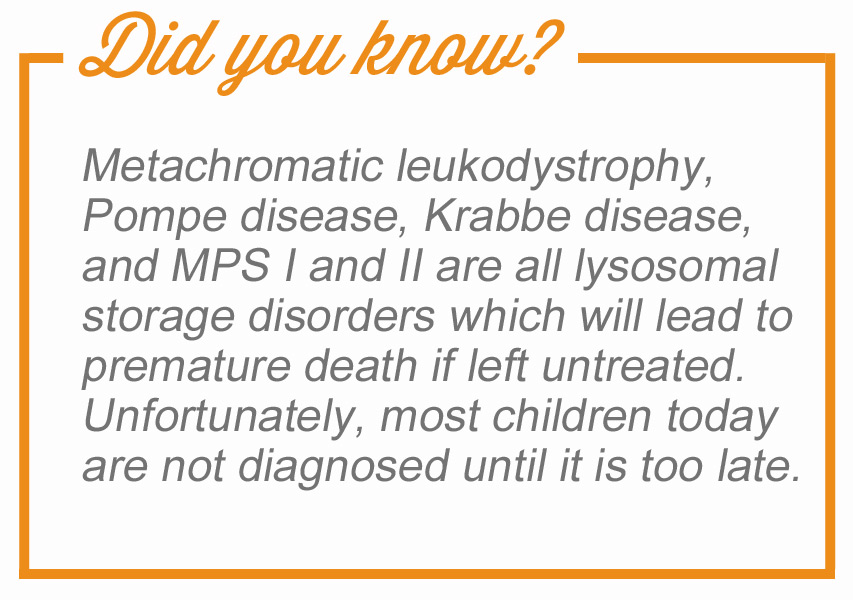 Medical Research
Medical Research
We at The Evanosky Foundation believe that two issues need to be resolved to appropriately treat a child with MLD:
- Provide a child with the arylsulfatase-A (ARSA) enzyme, since the deficiency of this enzyme causes MLD.
- Repair the damage that has already occurred to the brain and overall nervous system as a result of the degenerative process of MLD.
Exciting progress is being made on the first issue, which is providing the child with the arylsulfatase-A (ARSA) enzyme. Currently, two forms of treatment can provide the ARSA enzyme:
- Bone marrow or umbilical cord stem cell transplants - currently the only available treatment - have been improving since the start of this decade due to better drugs and increased knowledge of how MLD progresses.
- Enzyme replacement therapy. Shire, a US-based pharmaceutical company with a history of working with enzyme replacement therapy and other drugs, purchased arylsulfatase-A (ASA), an Enzyme Replacement Therapy (ERT) for MLD from the Danish Company, Zymenex. Shire decided to suspend the development of this therapy in favor of other treatments. Click here for more information.
Did you know?
Lysosomal storage disorders affect 1 of every 5,000 babies, and over 4.1 million babies are born in the US each year. This means that over 800 children will be born with these fatal diseases in 2011 alone!
However, minimal progress has been made on issue #2 above in repairing damage that has already occurred to the brain and nervous system. Because of this, many MLD children have not received transplants since doctors do not want to “trap” them in a damaged body. Even the children who have received stem cell transplants live with residual damage and have many medical issues.
As we move forward, we have a goal of “rescuing” these children and will therefore focus most of our efforts on medical research on two projects:
- We continue to support research at Duke University that targets myelin repair. Myelin is the coating that surrounds the nerves and it is destroyed by the accumulation of sulfatide compounds in a child who is affected by MLD. The project we are funding shows promising results in animals that have been injected with oligodendrocyte-type cells generated from umbilical cord blood. We are optimistic that human clinical trials will begin soon.
- We have brought together a team of researchers to look at using specific cells from umbilical cord blood that can aid brain or nervous system repair. This project will leverage data from other studies and is in the early stages of development.
To find out more on MLD Research, click here.
Click here to continue to Family Support goals.


